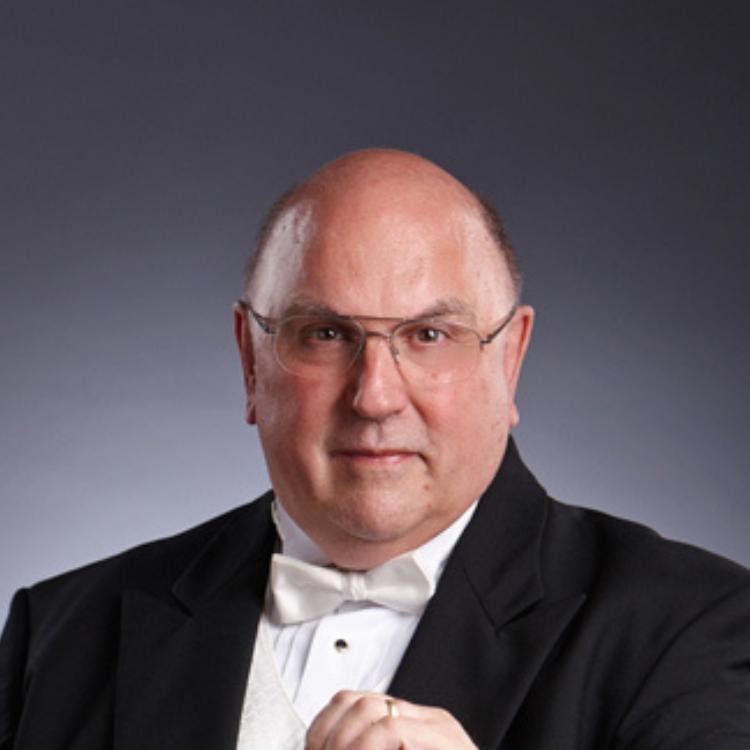
No. 9 - Toward a More Inclusive Church Music
The inspiration for Servanthood of Song came from my almost fifty-year career as a church musician. Classically-trained as a singer, voice teacher, and conductor, I had to learn that church music, if it is to be the powerful witness it can be, must be understood as a ministry with different priorities than those of the school, the concert hall, or popular culture. The more I researched, the more I realized that “music ministry” was not a new idea, but one which germinated early on in our country’s history and grew as it threaded its way from one generation to another.
I remember that, as I was about to leave a parish I had been serving, a non-musician church member told me my leadership had been “transformational”. I was, of course, flattered by the comment, but also taken aback. Upon reflection, I realized the individual was responding to my almost unconscious tendency, not simply to perform, but to teach – to teach about liturgy, about the hymns, the historical background of the hymns – anything that might make the worship experience more relevant and meaningful. Communicating “why we do what we do” should be a priority for all of us in all our work.
We are now in the second decade of the 21st century. Clearly, it is an unsettled time in American church music. There is a dearth of young people seeking careers in church music. Some churches have discontinued choir programs, and, in many cases, traditional hymnody is being replaced with contemporary Christian ‘praise music’. Full-time, career positions in music leadership are often being replaced with part-time or multiple part-time help. The classically trained church musician is likely to ask, “Why is this happening? What can be done?”
To gain perspective on the current state of American church music, I believe we must look at the historical record. Servanthood of Song chronicles the many controversies that have roiled American church music from its earliest days. Clearly, the problems we face today are not new. There have been many missed opportunities through the generations. Three immediately spring to mind: the allowing of racial and gender discrimination to limit potential for ministry, the worship of “tradition” taking precedence too often over the pursuit of a “living faith”, and the seeming inability from one generation to the next to achieve robust congregational singing of hymns.
The writing of Servanthood of Song arose out of core beliefs that have shaped my ministry over the years. Among them:
•That music in the Church needs to be understood as a ministry largely different in focus from that of secular society;
•That the Church must return to its ancient understanding of community and what that means for servanthood;
•That to understand the challenges and promise of church music in the present, it is essential we understand American church music history.
•That all-encompassing inclusivity in worship is of critical importance;
Ministry: I titled Servanthood of Song as I did because I believe music must be understood as a ministry of the church. All ministry is servanthood. All ministry is pastoral. Beginning in the 1830s, with the philosophical ideas of Lowell Mason and Thomas Hastings and the incipient influence of the Oxford ritualistic movement, we see the concept of “ministry” repeatedly evoked in reference to music in the church. History teaches us that the church musician, unlike his or her secular counterparts, must be equal parts musician, pastor, and teacher – a minister whether or not titled as such. The principal objective of music for the concert performer or teacher is artistic expression. For the church musician, it must be ministry. They are two separate and distinct disciplines. The church musician is CALLED both to lead and to be a servant, to sacrificially balance artistic considerations with the mandate to witness through song.
The Call
Will you come and follow me if I but call your name?
Will you go where you don’t know and never be the same?
Will you let my love be shown; will you let my name be known;
Will you let my life be grown in you and you in me?
(Text by John Bell and Graham Maule, ©Iona Community/GIA, 1987)
Community: Undergirding all I have written is my unshakable belief in the church as “community”. We, as a church and as church musicians, must continually aspire to minister to the entire worshipping community, and that means we need to know and embrace the entire community. Most troubling, , as we review our history are the repeated attempts from generation to generation to shape worshipping communities by setting arbitrary standards of musical taste. The effects on ministry have been devastating.
Understanding our heritage in American church music: It is my experience that very few church musicians, whether trained classically or in contemporary worship idioms, have a solid grounding in the history of American church music. I find that shocking. We all, I believe, have accepted a call to serve the communities in which we labor. How can we serve those communities in a wholistic way if we don’t know our history – our victories, our failures, the incredibly diverse influences to bring us to where we are today.
The Tyranny of Labeling
In the previous installment I discussed the unfortunate misuse of the word “evangelical”, a concept which I think is central to all ministry in the Christian church. It is but one example of what I call “labeling”. We love to simplify complex and challenging situations by generalizing and labeling. We see it in racism where we judge others by their skin color rather than individual merit. In the fraught area of politics, it rears its head when we see only party affiliation rather than the entire individual. In the church, we have seen it played out in regrettable histories of gender and racial discrimination.
I believe that where music in the church is concerned, we should no longer be talking about the labels “contemporary versus traditional”; there is only American sacred music. All worship should be contemporary, whatever the style, in that it must effectively minister and engage those in the pews here and now. All worship, whatever the style, should have a healthy respect for its traditional roots in Christian history. We should no longer dismiss an entire class or style of music as inappropriate but judge individual works on their own merit, musically and textually. As for European art music, it must and should remain an important part of choral and organ repertoire in worship, but church musicians will be wise to insist it share a place with music from our American heritage as well as that of other non-European cultures.
Inclusivity
I believe that the great challenge of the 21st century for churches and for church musicians is not a contest pitting advocates of evangelical praise and worship music against supporters of classic hymns and anthems by master composers. Rather, I believe we are challenged to find common ground – to maintain a healthy respect for worship traditions handed down through the ages and, when it comes to music, to minister effectively to the communities we serve, drawing always from the best within the cornucopia of styles available to us.
Best wishes and Peace,
Stan McDaniel
[1] “The Summons”, Text by John Bell and Graham Maule, © G. I A. Publications representing Wild Goose Resource Group/Iona Community, 1987; Used by Permission.

AUTHOR
Stan McDaniel
©2023 Stanley R. McDaniel, All Rights Reserved.
Copying or re-publication is expressly prohibited without direct permission of the author.

